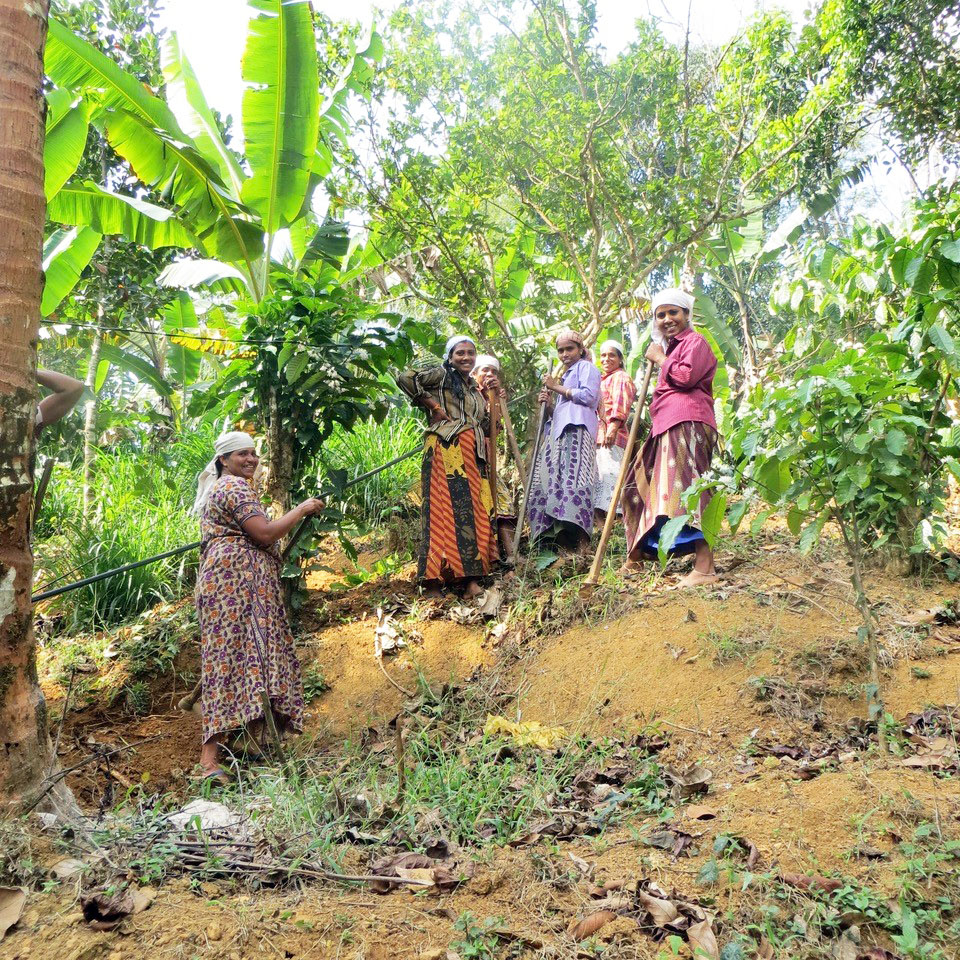The Kerala region is renowned for its progressive and forward-thinking  societal standards. One of the biggest initiatives to promote gender equality in India is the creation of self help groups (SHGs). SHGs have become an important tool in promoting women’s empowerment. Profugo has taken advantage of the opportunity and has been working on the possibility of creating SHGs within our community. The tailoring program and the Profugo Market are female-focused, which provides the chance to inspire social change.
societal standards. One of the biggest initiatives to promote gender equality in India is the creation of self help groups (SHGs). SHGs have become an important tool in promoting women’s empowerment. Profugo has taken advantage of the opportunity and has been working on the possibility of creating SHGs within our community. The tailoring program and the Profugo Market are female-focused, which provides the chance to inspire social change.
Self help groups are micro-enterprises that provide the opportunity for collective self-employment and enable the participants to improve skills such as personal development, technology, credit, and marketing. The intention was to help alleviate poverty in rural communities, specifically focusing on women and girls, but has developed to support the wellbeing of the entire family and community. Although SHGs are evolving and adapting, the purpose has always been to give women the power to initiate important projects.
SHGs provide an opportunity to seek additional roles in society; it gives women autonomy. Many cultures outline specific standards and regulations for women, which often pushes them to accept an unequal status. In India, women typically need permission or a purpose to leave the home. With the creation of SHGs, women are seeing more social autonomy as they have to travel to regular group meetings. These groups often need to determine their own financial plans and sustainability strategies. By learning about new topics and developing additional skills, the women are able to improve self-efficacy. Finally, by including women outside of the family unit, the members are able to create larger social networks and a bigger support system.
The establishment of SHGs in Kerala would be monumental to the progression of gender equality. Through building autonomy amongst the women of Wayanad, there will be more opportunities for the girls and boys within the community. SHGs are an important development in Indian society and prove that the people are willing to move forward in their ideals. Women and men will hopefully continue to seek new ways to empower women and their families.
References:
- Minimol, M. C., and K. G. Makesh. “Empowering rural women in Kerala: A study on the role of Self Help Groups (SHGs).” International Journal of Sociology and Anthropology 4.9 (2012): 270.
- Mohindra, K. S. “A report on women Self Help Groups (SHGs) in Kerala state, India: a public health perspective.” Université De MontréAl. Mar (2003).

Leave a Reply
You must be logged in to post a comment.